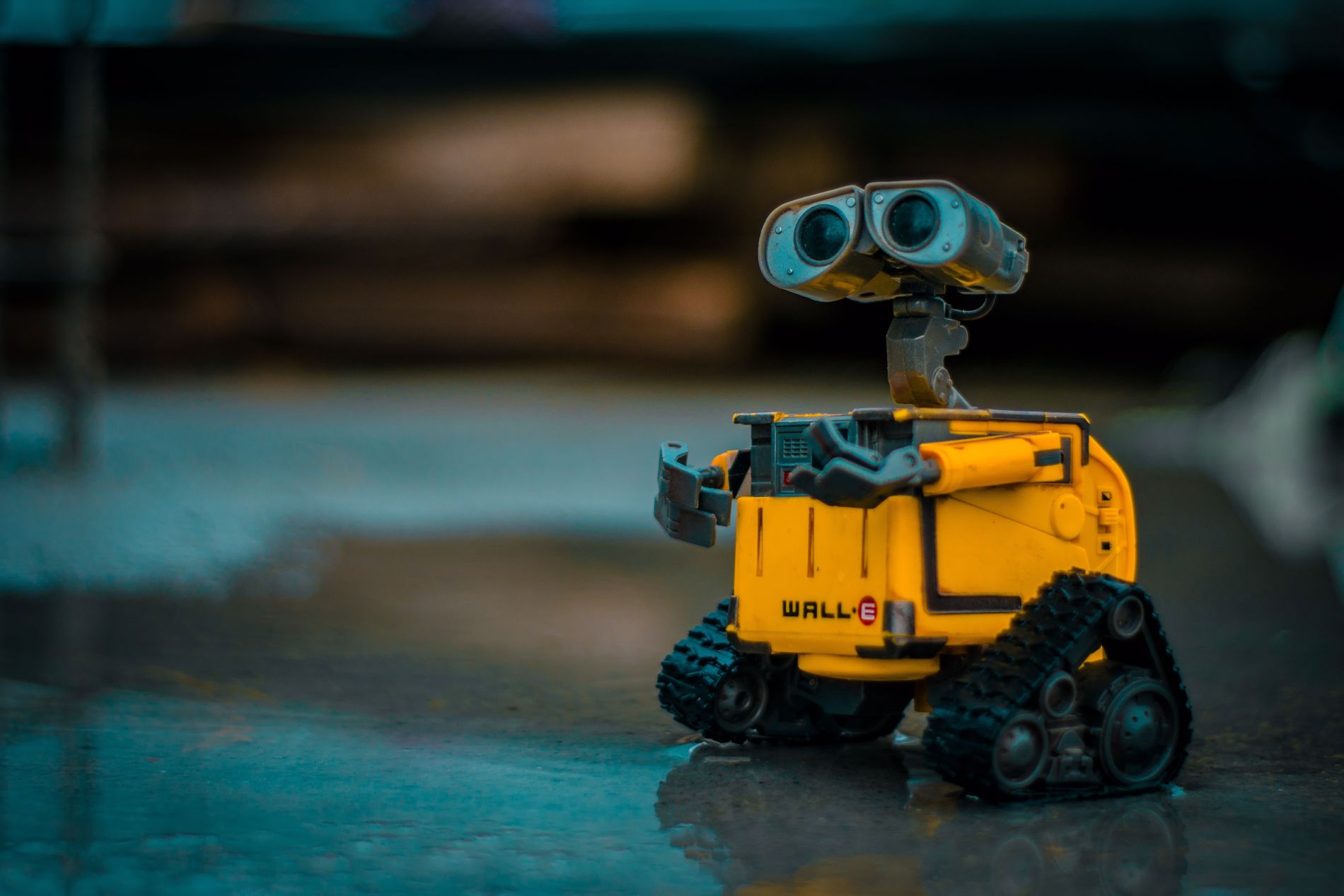In the previous article, we discussed two trending directions in the tech industry: AR/VR and IoT – their main goals, statistics, and interesting startups.
Here we’re going to talk about three other industries that are just as popular, more specifically, AI, cybersecurity, and business ecosystems.
3. Artificial Intelligence (AI)
Today AI is used by almost every advanced tech company. It belongs to those technologies whose use-cases are simply limitless. While 31.6% of telecommunication organizations prefer to stick to existing technological infrastructure, 63.5% of the organizations are investing in AI systems. Network optimization, Robotic Process Automation (RPA), virtual assistants, and predictive analytics are the main directions turned head over heels thanks to AI.

There are many speculations around this technology and many are already saying that AI is not at all as developed as most people assume it is. Nevertheless, its abilities are still quite impressive and it is evolving as we speak.
According to Statista, in 2018 the AI market revenue was 10.1 Billion dollars. By 2025 the amount is expected to reach 126 Billion. As for the startups, CBINSIGHTS reports that more than 3.6 thousand AI startups have received 66 Billion dollars in funding since 2013.
Interesting startups
-
A data-driven marketing language cloud startup Persado analyses conversation of their client company’s users. “Imagine having a data scientist and a copywriter for every one of your audience.” – We read in the company description.
-
Wint startup tracks damages in water pipes and stops the water flow in that direction. The platform is compliant with the building management system and works on the cloud for more efficiency.
4. Cybersecurity
The more we adopt the digital space and the more closely connected these platforms (or things) become the more attack points are created on our valuable data. One of the main problems of today’s technologies is security. To have a better picture of how insecure our information is becoming, in 2018 hackers stole half a billion of data which is a 126% increase compared to the previous year.
What will happen if our data ends in the wrong hands? What will happen if someone else gets control over our smart home? The more ambiguous the answers to such questions are, the more frightening they become.
The development of cybersecurity systems follows any kind of technological advancement. If the system is not secure then it brings more risks than benefits. That is why the size of this sector is increasing day by day:
In 2017 the cybersecurity market size was 137.62 Billion dollars. By 2023 it is predicted that this amount will reach 248.6 Billion dollars.

Interesting startups:
-
Kentik’s innovative solution provides the means to find errors during the creation and implementation of the security strategy of network intelligence platforms. This enables companies to detect weak points early on and minimize the risks of cyber attacks.
-
A startup that was created to protect the nuclear launch codes is now used broadly in the cloud, mobile, and IoT industries. Secret Double Octopus eliminates the need for passwords and digital keys: through secret shared algorithms it effectively protects the information needed for breaking into a system.
5. Business ecosystem: Cooperation for preserving competitiveness

The different directions of the tech industry are coming closer and closer to one another and one can even say that they can’t evolve any further without each other.
We are already used to partnerships of seemingly competitive companies and acquisitions of small startups by industry leaders. This has its reasons: Today’s technological systems or devices consist of many (and quite complex) necessary but separate details. For example, AR/VR technologies depend on AI, cloud service providers need 5G internet, and IoT, well, IoT basically needs everything. The leading companies know far too well that to preserve competitiveness they have to rely on cooperation.
According to Accenture, business ecosystems could potentially unlock 100 Trillion Dollars of value over the next decade! The communications sector is actively involved in this process: 83% of the industry leaders note that business ecosystems hold an important part in their development strategies.
If you’re interested in this concept this article will provide you with more detailed information and will also help you figure out how big of a part business ecosystem should play in your growth strategy.




The future world: 2020 tech trends [part II]
14 August 2020In the previous article, we discussed two trending directions in the tech industry: AR/VR and IoT – their main goals, statistics, and interesting startups.
Here we’re going to talk about three other industries that are just as popular, more specifically, AI, cybersecurity, and business ecosystems.
3. Artificial Intelligence (AI)
Today AI is used by almost every advanced tech company. It belongs to those technologies whose use-cases are simply limitless. While 31.6% of telecommunication organizations prefer to stick to existing technological infrastructure, 63.5% of the organizations are investing in AI systems. Network optimization, Robotic Process Automation (RPA), virtual assistants, and predictive analytics are the main directions turned head over heels thanks to AI.
There are many speculations around this technology and many are already saying that AI is not at all as developed as most people assume it is. Nevertheless, its abilities are still quite impressive and it is evolving as we speak.
According to Statista, in 2018 the AI market revenue was 10.1 Billion dollars. By 2025 the amount is expected to reach 126 Billion. As for the startups, CBINSIGHTS reports that more than 3.6 thousand AI startups have received 66 Billion dollars in funding since 2013.
Interesting startups
A data-driven marketing language cloud startup Persado analyses conversation of their client company’s users. “Imagine having a data scientist and a copywriter for every one of your audience.” – We read in the company description.
Wint startup tracks damages in water pipes and stops the water flow in that direction. The platform is compliant with the building management system and works on the cloud for more efficiency.
4. Cybersecurity
The more we adopt the digital space and the more closely connected these platforms (or things) become the more attack points are created on our valuable data. One of the main problems of today’s technologies is security. To have a better picture of how insecure our information is becoming, in 2018 hackers stole half a billion of data which is a 126% increase compared to the previous year.
What will happen if our data ends in the wrong hands? What will happen if someone else gets control over our smart home? The more ambiguous the answers to such questions are, the more frightening they become.
The development of cybersecurity systems follows any kind of technological advancement. If the system is not secure then it brings more risks than benefits. That is why the size of this sector is increasing day by day:
In 2017 the cybersecurity market size was 137.62 Billion dollars. By 2023 it is predicted that this amount will reach 248.6 Billion dollars.
Interesting startups:
Kentik’s innovative solution provides the means to find errors during the creation and implementation of the security strategy of network intelligence platforms. This enables companies to detect weak points early on and minimize the risks of cyber attacks.
A startup that was created to protect the nuclear launch codes is now used broadly in the cloud, mobile, and IoT industries. Secret Double Octopus eliminates the need for passwords and digital keys: through secret shared algorithms it effectively protects the information needed for breaking into a system.
5. Business ecosystem: Cooperation for preserving competitiveness
The different directions of the tech industry are coming closer and closer to one another and one can even say that they can’t evolve any further without each other.
We are already used to partnerships of seemingly competitive companies and acquisitions of small startups by industry leaders. This has its reasons: Today’s technological systems or devices consist of many (and quite complex) necessary but separate details. For example, AR/VR technologies depend on AI, cloud service providers need 5G internet, and IoT, well, IoT basically needs everything. The leading companies know far too well that to preserve competitiveness they have to rely on cooperation.
According to Accenture, business ecosystems could potentially unlock 100 Trillion Dollars of value over the next decade! The communications sector is actively involved in this process: 83% of the industry leaders note that business ecosystems hold an important part in their development strategies.
If you’re interested in this concept this article will provide you with more detailed information and will also help you figure out how big of a part business ecosystem should play in your growth strategy.